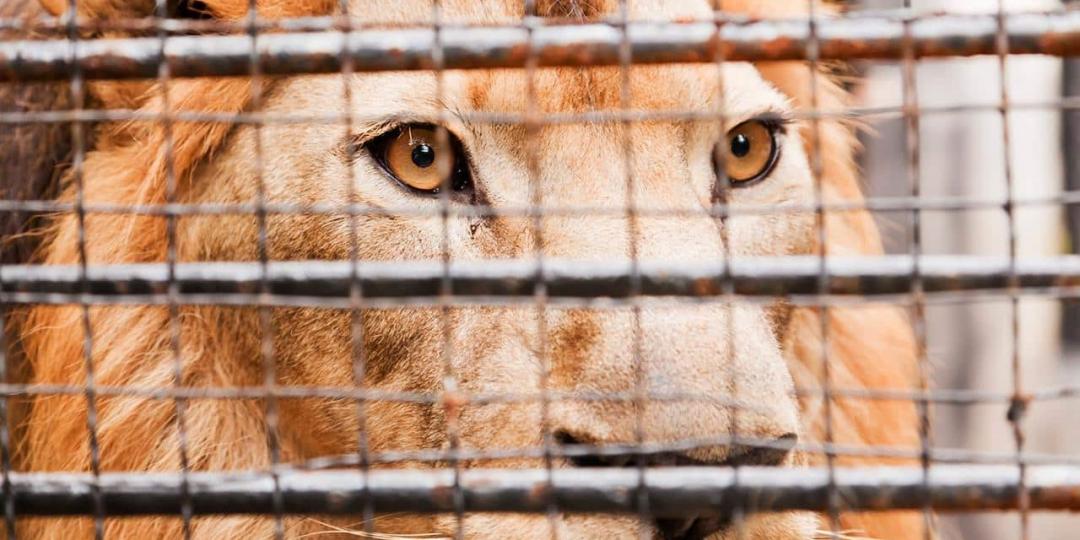After years of controversy and deliberation amongst stakeholders and government, it seems as if the captive breeding of lions for commercial purposes in South Africa is coming ever closer to finally being halted.
The South African Government’s draft Policy Position, which is currently open for public comment until November 20, is set to stop the keeping of captive lions for commercial purposes; close captive lion facilities, and to halt the intensive breeding of lions in a controlled environment.
Ian Michler, Director of the documentary Blood Lions – which exposes the reality of canned lion hunting and lion trophy hunting in South Africa – and Founder of Invent Africa Safaris, a travel company specialising in tailor-made safaris across the continent, told Tourism Update that if the policy came to fruition, this would be extremely good news for the tourism and conservation industry.
Asked about the recent study conducted by The Conversation – which found that tourists were willing to pay a ‘lion protection fee’ to help stop trophy hunting – Michler said: “I would absolutely support an initiative like that. I would support anything right now to secure the future of these endangered animals.”
But, he said, this is only one step. “We still need to aim to end all forms of trophy hunting as a conservation tool because it is simply not a conservation tool.”
Michler continued: “Trophy hunters believe they are conservationists because they breed more lions, and if the lion population in the wild declines, the bred lions will be able to save the species. But many studies have shown that captive-bred lions can not and will not survive in the wild.”
He pointed out that trophy hunting, or killing animals for fun, was not an African-focused activity.
“Trophy hunting began over 120 years ago as a colonial construct. The colonials brought it into the continent and came in as a sport. It never started as a form of conservation – it has always been a sport. They only started using the conservation justification here in Africa when they realised they were up against many opposed to what they were doing.”
Zero conservation benefits
Michler emphasised that trophy hunting had zero conservation benefits, and that trophy hunting was an “illogical concept”.
“It is not sustainable because what trophy hunters don’t tell you is the ‘sport’ of hunting doesn’t limit the number of animals killed, and so animals’ gene pools can be completely eradicated.”
Michler said the number of trophy hunters continued to decline worldwide. “And the amount of money that trophy hunting is contributing to so-called ‘conservation’ is declining.”
Michler, who has over 34 years’ experience as a journalist and conservationist, referred to the fact that he had been to many areas in Africa where trophy hunting had been stopped, highlighting that it took quite a long time for the wildlife to recover.
“It is noticeable how little wildlife there is and how scared the wildlife is of any form of human interaction – whether it is on foot or in a vehicle.”
More sustainable alternatives
He said South Africa had far more sustainable alternatives to trophy hunting, such as well managed eco-tourism.
In his book, Living in Two Worlds, Addressing Humanity’s Greatest Challenge, he says the country does not need trophy hunting to protect parks and wildlife.
“We now have good comparative studies showing the merits of non-consumptive options: Ecotourism and other models embracing conservation without the unnecessary killing. Botswana and Rwanda are two countries leading the way with well-managed national legislation in photographic tourism. Over the past 30 years, the substantial economic growth experienced across northern Botswana is attributed primarily to the expansion of ecotourism, as the country moved away from trophy hunting.”
He added that many NGO projects in South Africa, Botswana, Zimbabwe, Tanzania and Kenya were excellent examples of land use that converted buffer zones, degraded agricultural land or hunting concessions into viable ecotourism projects.
“Notable projects include the efforts of Singita in Tanzania, where over 150 000 hectares of hunting concessions have been turned into prized photographic destinations.
“In Botswana’s Okavango Delta, Wilderness Safaris paved the way for land-use switches in the 1990s by successfully turning numerous hunting concessions into thriving photographic areas.
“In South Africa, &Beyond and Mantis Collection have established prominent private protected areas without trophy hunting.”
However, he cautioned that these comparisons did not vindicate everything about the ecotourism industry or conservation models in general.
“The entire spectrum needs scrutiny and change, but as models currently stand, the ecotourism sector remains by some margin a superior, sustainable management option that has little to do with diluting an already diminishing gene pool.”
EDITOR’S NOTE: Tourism Update is doing a follow-up story with comment from the Custodians of Professional Hunting & Conservation South Africa.























